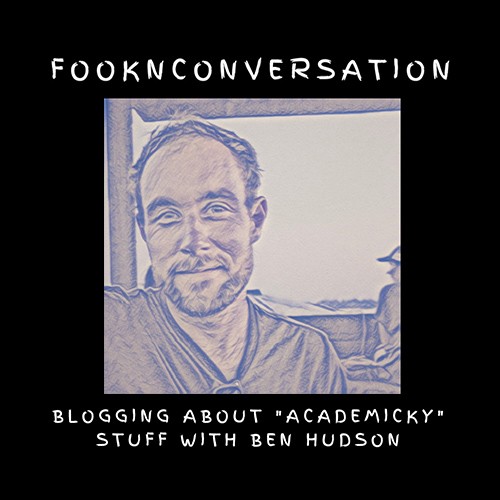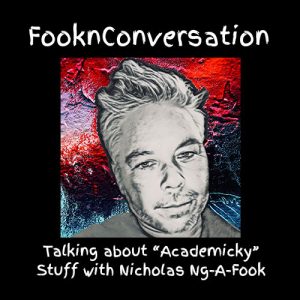
A blog by Ben Hudson.
I loved history at school. I spent many afternoons cramped between the scratched desks of stuffy classrooms in old buildings, listening to my teacher, Mr. Crichton, sketch out the contours of the Cuban Missile Crisis or the Russian Revolution. On one such afternoon, the ceiling above Mr. Crichton’s desk collapsed in a shower of rubble and a cloud of dust. Thankfully, Mr. Crichton’s energetic teaching style ensured that he never sat down, and he was unhurt by the sudden destruction. What makes this story truly memorable, is that the lesson continued as planned. History was not to be interrupted. Indeed, it is testament to my teacher’s unstoppable passion for his subject that this event is far from the strongest memory I have from history class. Mr. Crichton understood that a good story is complex, and that, despite the need to keep copious notes on dates and influential people, the more important part of the lesson was dialogue.
I saw these dialogues as debates over narratives. What narrative of history was most compelling, given our understanding of the context? I was less aware of how immersed in the ideologies and identities of the historians, the history curriculum, the school, and my teachers these narratives were. Certainly, against the backdrop of an English Public (Independent) School this included what Lindsay Gibson and Roland Case term an “ethnocentric Western epistemology,”[i] closely bound with notions of “national heritage and citizenship.”[ii] Mr. Crichton wanted us to have our own opinions, but these opinions were often based on rote memorization and the regurgitation of curriculum content that had remained unchanged for years. We learned about primary and secondary sources, and bias, but we rarely questioned the ethics of events beyond “conclusory terms”[iii] or specific controversies where we simply learned to parrot two or more opposing views. This approach prepared us for our exams, but perhaps left the question of narrative ownership (unlike the brick and mortar of the history classroom) off the table.
In this week’s readings, and podcast, the work of Gibson and others highlights the importance of “historical thinking” – promoting ethical considerations and discussions in history teaching and learning, guiding students to a fuller understanding of the need for “commemoration, redress, and recognition of past wrongs.”[iv] This is particularly important in approaching the history of marginalized groups and Indigenous people in Canada, where notions of right and wrong are often oversimplified and run the risk of being exclusionary or perfunctory. Citing Samantha Cutrara, Gibson and Case note the author’s argument that current history education in Canada “imposes a settler grammar” over past events.[v] This western grammar includes document sources and linear perceptions of time[vi], missing the significance of oral storytelling and circular notions of time in Indigenous thought.
While this critique is recognized by Gibson and Case, they reject a call for a radical rethinking of history as a subject, preferring to integrate Indigenous perspectives and ethical considerations into historical thinking. This approach uses the disciplinary “rigour” of history to enhance student “understandings of how historical knowledge is produced”[vii], developing what Gibson calls “historical consciousness” – understanding the past in relation to the present in complex ways[viii]. For my own part, I tend to agree with the idea that historical thinking provides the tools for “diverse groups to set out, debate, and reconcile the warrants for their conclusions about the past”[ix], but I am less confident in the application of this process. Given Gibson’s (2018) study that showed teachers tend to underplay their own ethical judgments, and the general “positivist” belief that historians are to try to remain “objective”[x], there is a danger that the additional work of thinking about ethics and responsibility will be buried under standard procedure and that dominant narratives will frame the dialogue.
References
Milligan, A. Gibson, L., & Peck, C. L. (2018). Enriching ethical judgments in history education. Theory & Research in Social Education. 46:3, 449-479. 10.1080/00933104.2017.1389665
Gibson, L. (2018). Ethical judgments about the difficult past: observations from the classroom. (pp. 81-103). In Magdalena Gross & Luke Terra. (Eds.). History and Social Studies Education in a Context of Intolerance. Routledge.
Gibson, L., & Case, R. (2019). Reshaping canadian history education in support of reconciliation. Canadian Journal of Education, 42(1), 251-284. https://search-proquest-com.proxy.bib.uottawa.ca/docview/2228693849?accountid=14701
Ng-A-Fook, N. (Fooknconversation Host). (2020, April 6). Episode 02: Lindsay Gibson Fookinconversation. https://www.fooknconversation.com/podcast/episode-02-lindsay-gibson/
[i] Gibson, L., & Case, R. (2019). Reshaping Canadian history education in support of reconciliation. Canadian Journal of Education, 42(1), 251-284. p. 253
[ii] Milligan, A. Gibson, L., & Peck, C. L. (2018). Enriching ethical judgments in history education. Theory & Research in Social Education. 46:3, 449-479. p. 451
[iii] Ibid. p. 459
[iv] Ibid. p. 450
[v] Gibson, L., & Case, R. (2019). Reshaping Canadian history education in support of reconciliation. Canadian Journal of Education, 42(1), 251-284. p. 253
[vi] Ibid. p.262
[vii] Milligan, A. Gibson, L., & Peck, C. L. (2018). Enriching ethical judgments in history education. Theory & Research in Social Education. 46:3, 449-479. p. 452
[viii] Ng-A-Fook, N. (Presenter). (2020, April 6). Episode 02: Lindsay Gibson Fookinconversation. https://www.fooknconversation.com/podcast/episode-02-lindsay-gibson/
[ix] Gibson, L., & Case, R. (2019). Reshaping Canadian history education in support of reconciliation. Canadian Journal of Education, 42(1), 251-284. p. 264
[x] Gibson, L. (2018). Ethical judgments about the difficult past: observations from the classroom. (pp. 81-103). In Magdalena Gross & Luke Terra. (Eds.). History and Social Studies Education in a Context of Intolerance. Routledge.

